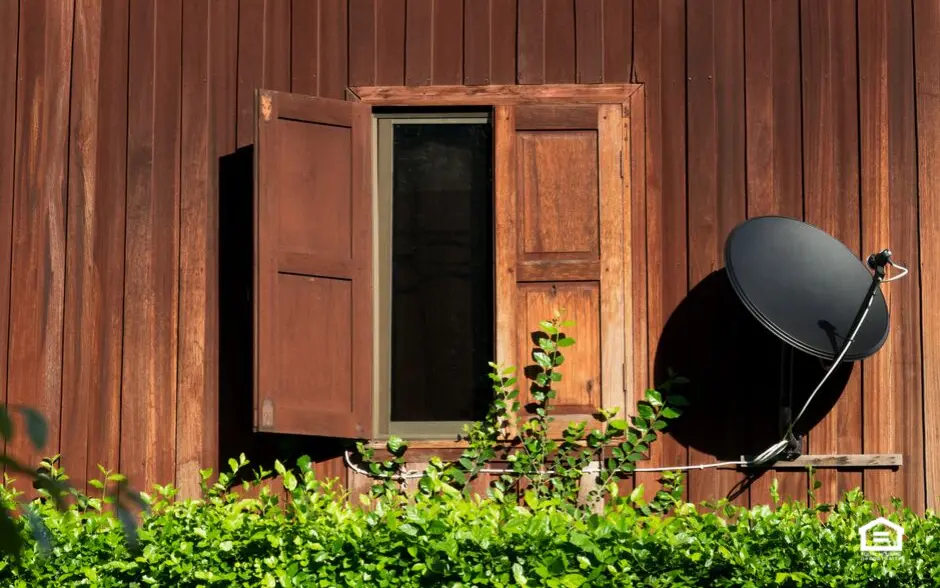

When a tenant signs up for satellite services, they often don’t think about getting permission from their landlord. There are many reasons why a property owner might want to set rules for tenants who wish to have satellite dishes installed on a rental house, especially considering the fact that many tenants fail to have the dish removed when they move out. However, banning them entirely is not an option as there are important laws that a property owner must know to avoid finding themselves in a court battle with their tenant. By first gaining an understanding of the law, as well as how to manage tenants who want to install a satellite dish on the property, landlords are better able to keep their property free from unwanted clutter and expensive repairs.
 Man installing small satellite dish on side of house" width="448" height="280" />
Man installing small satellite dish on side of house" width="448" height="280" />
There’s no question that satellite dishes can become a nuisance. Over time, multiple satellite dishes can create an ugly eyesore as well as cause significant damage to a rental home’s exterior. But simply banning satellite dishes outright could potentially lead to a violation of your tenant’s rights.
According to the FCC rules for Over-the-Air-Reception Devices (OTARD), a tenant has the legal right to install a satellite dish on a home he or she is renting. The regulations are clear about this, which means that landlords must allow satellite dishes.
However, the law does not forbid property owners from imposing reasonable restrictions on satellite dish installation to prevent damage to their property. Satellite dish installers are not always concerned about how and where the dish is installed on the property, as long as the job gets done. What this means is that unless they are told specifically where they can and cannot install the satellite equipment, they may drill holes in walls, fences, and even balcony railings and floors, damaging the property in the process.
For this reason, it is important to include language in a rental lease that restricts satellite dish placement as well as clearly explains the tenant’s responsibility to remove the dish and repair any resulting property damage when they move out. The language in your lease is always your best first line of defense; the second is helping your tenants understand their responsibilities in regard to satellite dishes. This includes returning the property in good condition and paying for any necessary repairs. If the removal of the satellite dish leaves holes or other damage, it is the tenant’s responsibility to ensure those repairs are property done.

Of course, the language in your lease is only as good as your ability to enforce it, making regular property evaluations a key part of property management. If a tenant does install a satellite dish on the property without your permission, there are several ways to handle the situation. If you’ve included language in the lease addressing satellite dishes, you can simply enforce the terms to which you and your tenant have already agreed. If the satellite dish installation violates your terms, you should ask the tenant to remove it and repair any resulting damage immediately. If the tenant refuses to do so, you may need to take matters further and start eviction proceedings. Without clear and written language assigning tenant responsibility for the dish, however, you will have little or no recourse in the event of an unauthorized installation.
Managing and monitoring your tenants and rental property for aspects such as unsanctioned satellite dishes is an important but time-consuming part of being a property owner. If, as they say, time is money, then your time is far better spent focused on growing your property investments instead of dealing with the many tasks that day-to-day property management requires. When you hire Real Property Management, we will ensure your lease includes all necessary language and that tenants are educated on their responsibilities in advance, as well as perform regular property evaluations and ensure tenant compliance, if needed.